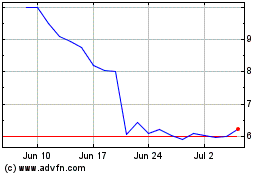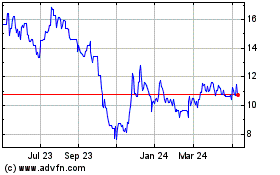Aeterna Zentaris Inc. (NASDAQ: AEZS) (TSX: AEZS) (“Aeterna” or the
“Company”), a specialty biopharmaceutical company developing and
commercializing a diversified portfolio of pharmaceutical and
diagnostic products, today provided an update on the positive
results from pre-clinical studies of Aeterna’s Autoimmunity
Modifying Biologicals (“AIM Biologicals”), for the potential
treatment of Parkinson’s Disease (“PD”). As previously announced,
the data were presented at IMMUNOLOGY2022™, the annual event of the
American Association of Immunologists, held on May 6-10, 2022 in
Portland, Oregon.
“Under our collaboration with the University of
Wuerzburg, Prof. Wischhusen, Prof. Chi Wang Ip, and their teams
have provided data that we believe is important pre-clinical proof
of concept for our AIM Biologicals platform,” said Dr. Klaus
Paulini, Chief Executive Officer of Aeterna Zentaris. “In various
in-vitro and in-vivo assays, the team has demonstrated the
antigen-specific immune-modulatory activity of these HLA-G based
molecules. We are very pleased with the encouraging progress of our
AIM Biologicals program and the potential utility for the treatment
of PD.”
AIM Biologicals are targeted, highly specific
autoimmunity modifying therapeutics. The scientific concept behind
this platform technology is “feto-maternal-tolerance”. During
pregnancy, the immune system of mothers does not attack the fetus,
which consists of 50% paternal proteins. For this, the immune
system is not downregulated, but selectively de-sensibilized, thus
ensuring that the mothers continue to be protected against
infections.
For development as potential PD therapeutics,
the Company is utilizing, among others, an innovative animal model
on neurodegeneration by α-synuclein-specific T cells in
AAV-A53T-α-synuclein Parkinson's disease mice, which has recently
been published by our University of Wuerzburg research
collaborators.
The abstract titled “α-synuclein peptides
presented on chimeric MHC class Ib molecules prevent loss of
substantia nigra neurons in an animal model for Parkinson’s
disease1” outlining the data was presented by Prof. Joerg
Wischhusen, PhD, Head of the Laboratory of Experimental Tumor
Immunology, Department of Obstetrics and Gynecology, School of
Medicine, University of Wuerzburg. As previously announced, that
abstract was accepted as a poster presentation and was also
selected for an oral presentation at IMMUNOLOGY2022™.
The pre-clinical study investigated whether
novel, antigen-specific, tolerance-inducing biomolecules that
present peptide antigens on MHC class Ib-related molecules can
inhibit neurodegeneration and prevent PD in-vivo.
The pre-clinical data presented showed
consistent effects in various in-vitro and in-vivo models,
verifying the potential of HLA-G based molecules to induce
antigen-specific immune-modulation. Treatment with such molecules
(AIM Biologicals) lead to apoptosis of antigen-specific cytotoxic T
cells and to the stimulation of regulatory T cells. In a new,
innovative mouse model of Parkinson’s disease, treatment with
α-Synuclein specific AIM Biologicals showed a trend towards
improved motoric function, as well as significant induction of
regulatory T cells and rescue of substantia nigra neurons.
“There is a growing interest in the induction of
antigen-specific immunotolerance in neuroinflammatory diseases,”
said Prof. Joerg Wischhusen. “Utilizing such therapeutic approaches
is of particular interest in the potential treatment of PD, since
currently available treatment options are symptomatic and
immunomodulatory treatments have not yet been tested. We were
pleased with the results from this study and believe the
translational potential of this approach deserves further
exploration.”
The abstract and poster can be accessed on the
Publications page of the Company’s website.
About Parkinson’s
Disease
(PD)
Parkinson’s disease is a neurodegenerative
movement disorder affecting over 7 million people worldwide. PD
belongs to a family of disorders termed synucleinopathies, which
exhibit a characteristic deposition of α-synuclein aggregates in
so-called Lewy bodies. Degeneration of dopaminergic neurons in the
substantia nigra (SN) leads to a loss of dopaminergic transmission
in the striatum. Neuroinflammation is a well-established hallmark
of the disease. Recent data provide growing evidence for a strong
autoimmune component in PD, with α-synuclein-specific T cell
responses playing a key role in disease progression.
About AIM
Biologicals
AIM Biologicals utilizes a novel mechanism based
on peptide antigens that are presented on MHC class I molecules, to
selectively and efficiently induce antigen-specific tolerance.
Based on this mechanism, the immunomodulating therapeutics are
designed as optimized soluble molecules that can be adapted to
selectively induce tolerance to various autoantigens. Pre-clinical
studies conducted by the University of Wuerzburg thus far indicate
that tolerance induction appears to be achieved via selective
elimination of antigen-specific immune effector cells and via
induction of antigen-specific regulatory T cells from naïve T
cells. Accordingly, α-Synuclein-specific AIM Biologicals may have
the potential to become a highly specific and effective treatment
of PD.
About Aeterna Zentaris Inc.
Aeterna Zentaris is a specialty
biopharmaceutical company developing and commercializing a
diversified portfolio of pharmaceutical and diagnostic products
focused on areas of significant unmet medical need. The Company's
lead product, macimorelin (Macrilen™; Ghryvelin®), is the first and
only U.S. FDA and European Commission approved oral test indicated
for the diagnosis of adult growth hormone deficiency (AGHD). The
Company is leveraging the clinical success and compelling safety
profile of macimorelin to develop it for the diagnosis of
childhood-onset growth hormone deficiency (CGHD), an area of
significant unmet need, in collaboration with Novo Nordisk.
Aeterna Zentaris is dedicated to the development
of therapeutic assets and has recently taken steps to establish a
growing pre-clinical pipeline to potentially address unmet medical
needs across a number of indications, including neuromyelitis
optica spectrum disorder (NMOSD), Parkinson's disease (PD),
hypoparathyroidism and amyotrophic lateral sclerosis (ALS; Lou
Gehrig's disease). Additionally, the Company is developing an oral
prophylactic bacterial vaccine against SARS-CoV-2 (COVID-19) and
Chlamydia trachomatis.
For more information, please visit
www.zentaris.com and connect with the Company on Twitter, LinkedIn
and Facebook.
Forward-Looking Statements
This press release contains statements that may
constitute forward-looking statements within the meaning of U.S.
and Canadian securities legislation and regulations and such
statements are made pursuant to the safe-harbor provision of the
U.S. Securities Litigation Reform Act of 1995. Forward-looking
statements are frequently, but not always, identified by words such
as “expects,” “anticipates,” “believes,” “intends,” “potential,”
“possible,” and similar expressions. Such statements, based as they
are on current expectations of management, inherently involve
numerous risks, uncertainties and assumptions, known and unknown,
many of which are beyond our control. Forward-looking statements in
this press release include, but are not limited to, those relating
to: expectations regarding the potential of AIM Biologicals-based
development candidate or related technology to be successful the
treatment of PD and our expectations with respect to any further
development of the AIM Biologicals.
Forward-looking statements involve known and
unknown risks and uncertainties, and other factors which may cause
the actual results, performance or achievements stated herein to be
materially different from any future results, performance or
achievements expressed or implied by the forward-looking
information. Such risks and uncertainties include, among others,
results from ongoing or planned pre-clinical studies of our
products under development, including AIM Biologicals, may not be
successful or may not support advancing the product to human
clinical trials or to result in a successful product; our ability
to raise capital and obtain financing to continue our currently
planned operations; our now heavy dependence on the success of
Macrilen™ (macimorelin) and related out-licensing arrangements and
the continued availability of funds and resources to successfully
commercialize the product, including our heavy reliance on the
success of the license agreement and the amended license agreement
(collectively the Novo Amended License Agreement); the global
instability due to the global pandemic of COVID-19 and the war in
the Ukraine and the resulting geopolitical instability, and its
unknown potential effect on our planned operations; our ability to
enter into out-licensing, development, manufacturing, marketing and
distribution agreements with other pharmaceutical companies and
keep such agreements in effect; and our ability to continue to list
our common shares on the NASDAQ. Investors should consult our
quarterly and annual filings with the Canadian and U.S. securities
commissions for additional information on risks and uncertainties,
including those risks discussed in our Annual Report on Form 20-F
and annual information form, under the caption "Risk Factors".
Given the uncertainties and risk factors, readers are cautioned not
to place undue reliance on these forward-looking statements. We
disclaim any obligation to update any such factors or to publicly
announce any revisions to any of the forward-looking statements
contained herein to reflect future results, events or developments,
unless required to do so by a governmental authority or applicable
law.
No securities regulatory authority has either
approved or disapproved of the contents of this news release. The
Toronto Stock Exchange accepts no responsibility for the adequacy
or accuracy of this release.
Investor Contact:
Jenene ThomasJTC TeamT (US): +1 (833) 475-8247E:
aezs@jtcir.com
1 J. Wischhusen, J. Wu, F. Ahsan, R. McFleder,
A. Karl, S. Mamatha Jayaram, H. Wecklein, A. Nienaber, D. Brünnert,
V. Bruttel, and C. Wang Ip. 2022. α-synuclein peptides presented on
chimeric MHC class Ib molecules prevent loss of substantia nigra
neurons in an animal model for Parkinson’s disease. Presented
at: IMMUNOLOGY2022™, Annual Meeting of The American
Association of Immunologists, May 5 – 10, The American Association
of Immunologists, Inc., Portland, Abstract 2150
Aeterna Zentaris (TSX:AEZS)
Historical Stock Chart
From Dec 2024 to Jan 2025

Aeterna Zentaris (TSX:AEZS)
Historical Stock Chart
From Jan 2024 to Jan 2025
